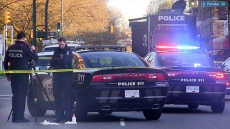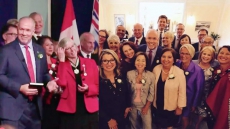VANCOUVER — Images of burning tires and marching soldiers flash across the screen in a video advertisement warning British Columbia voters that proportional representation provides the "perfect platform" for extremists.
As residents of the province vote in an ongoing referendum on electoral reform, the Vote No side is cautioning that the system would allow extremists to be elected with a tiny percentage of votes and hold the balance of power with "disastrous results."
Suzanne Anton, Vote No co-director who was attorney general in a previous B.C. Liberal government, pointed as an example to Sweden, where the far-right Sweden Democrats have roots in a neo-Nazi movement and won 18 per cent of the vote in a recent election while also picking up the third most seats in the Parliament.
It's a chilling message for voters weighing the options of maintaining the existing first-past-the-post system or moving to proportional representation, but two political scientists say the threat is being exaggerated.
Maxwell Cameron of the University of British Columbia says proportional representation, a system in which parties gain seats according to the number of votes cast for them, typically has a moderating effect on the political landscape because parties must work together to advance legislation.
"Patterns of Democracy" author Arend Lijphart says that while it's true an extremist party could gain seats under the system, the record of other countries shows they typically remain on the periphery.



